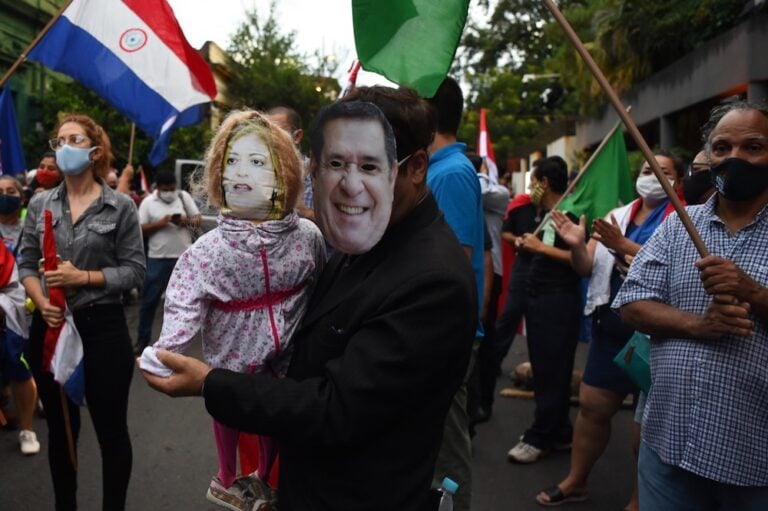(IAPA/IFEX) – The following is an IAPA press release: IAPA calls Paraguay Supreme Court ruling setback to press freedom MIAMI, Florida (January 5, 2006) – The Inter American Press Association (IAPA) today described a ruling by the Supreme Court of Paraguay as a setback for press freedom after the court ordered the editor of the […]
(IAPA/IFEX) – The following is an IAPA press release:
IAPA calls Paraguay Supreme Court ruling setback to press freedom
MIAMI, Florida (January 5, 2006) – The Inter American Press Association (IAPA) today described a ruling by the Supreme Court of Paraguay as a setback for press freedom after the court ordered the editor of the newspaper ABC Color to pay substantial damages for libeling a senator from the governing party, Juan Carlos Galaverna.
“Actions such as this limit and put at risk the possibility of the press to independently investigate alleged wrongdoing by public officials, whose actions must be more exposed to constant public scrutiny,” declared Gonzalo Marroquín, chairman of the IAPA’s Committee on Freedom of the Press and Information. “We fear that such court rulings as these could lead to self-censorship by the media and individual journalists, thus jeopardizing the public’s right to know.”
Galaverna, a member of the lower house of the national Congress for the governing Colorado Party, had filed a suit alleging libel and defamation by ABC Color’s editor, Aldo Zuccolillo, following reports in the newspaper between June 1997 and December 1998 accusing him of, among other things, “accepting free stays at the Guaraní Hotel in Asunción, being on a list of high-risk bank loan borrowers, influence peddling, and giving political protection to the then president of the National Workers’ Bank, who was later sentenced to 10 years in jail for bleeding the bank dry.”
On December 28, the Supreme Court upheld a lower court decision that awarded the equivalent of US $200,000 damages to Galaverna.
The IAPA’s Marroquín, editor of the Guatemala City, Guatemala, newspaper Prensa Libre, said the court should have taken into account that “this case involved a senior government official in a matter of general interest concerning the alleged mismanagement of a public sector bank.” He added that “the Paraguayan legal system does not embrace the doctrine of ‘real malice,’ an essential protection that exists in some other countries.”
Real malice, also known as malice aforethought, requires that a plaintiff taking legal action against the press for alleged defamation of a public official must prove that the published information was false and was known [by the accused] to be false.
The IAPA stressed that the principles set out in the Declaration of Chapultepec must be observed – including that which states no news medium nor journalist may be punished for publishing the truth or criticizing or denouncing the government – and said it would continue advocating a wider adoption of the international legal concept of real malice.


